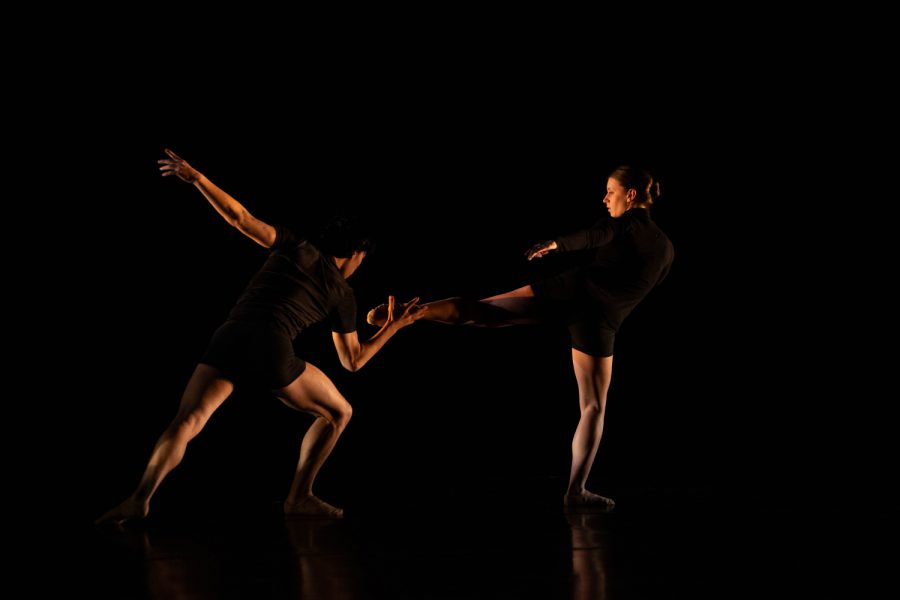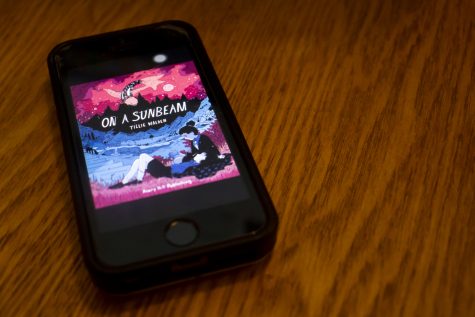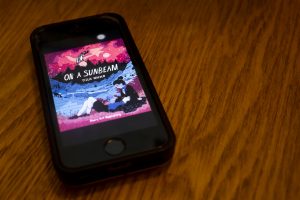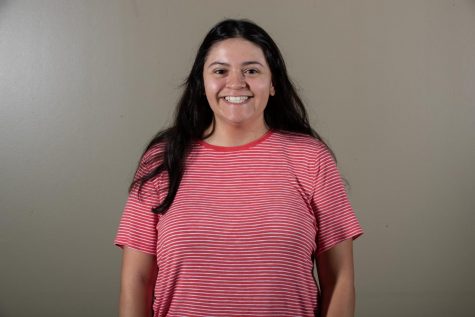UI dance faculty and students turn canceled performance into experiential podcast
Faced with a growing pandemic, the University of Iowa Dance Department faculty and students decided to turn their canceled in-person performance into a podcast, titling the dance ‘Mammals in Captivity.’
Dancers run through their routine during a dress rehersal for the Graduate/Undergraduate Dance Concert at Space Place Theater in North Hall on Tuesday, Deec. 10, 2019. The event featured multiple performances from dance students at the University of Iowa.
July 23, 2020
‘Mammals In Captivity,’ a modern contemporary dance created by University of Iowa Dance Department faculty and students, is coming to audiences in podcast form.
With the COVID-19 pandemic, choreographer and director of the project Stephanie Miracle said that an in-person event was no longer viable. Still wanting the show to go on, Miracle knew that the faculty and staff would have to improvise in order to deliver a similar, yet unique experience to the audience.
Miracle proposed the idea that the podcast medium was the way to go since the Natural Museum of History in MacBride Hall — which was to serve as their performance venue — was no longer available to the group due to COVID-19. The group had already researched ways to guide the audience through the tour via audio. In the end, the podcast would not replace the original idea of the performance, but instead, it would complement it, Miracle said.
Guests would have gathered in the gift shop and followed the dancers throughout the museum. The transition from a physical performance to an audio one was a unique and unexpected turn of events, made possible by their sound engineer Ramin Roshandel, said assistant director Michael Landez.
The podcast was composed by doing recordings through Zoom. Each cast member would submit their own audition, then Roshandel and Miracle would compile them together.
It was through much trial and error — throwing out what was not working in the podcast format, and keeping what did work — that allowed the podcast to come together in the end, Landez said. The podcast is currently available for download on Apple Podcasts and Soundcloud.
Landez likened the experience of the podcast to a museum tour.
“Sometimes we like to describe it as a deconstructed museum tour,” he said. “So you hear the voices of several, like three tour guides. And you’re invited to imagine walking through different spaces of the museum, but sometimes it becomes more fantastical and magical. And all of that is just up to how you engage with it in your imagination.”
RELATED: Virtual Iowa City Jazz Festival to showcase local and national performers
The theme and meaning of the performance can be found in the title itself, although it can have many interpretations, according to Miracle. For her, the word “captivity” is not meant purely in a negative connotation in this instance, but rather as in the captivity of the mind, she said.
“Your imagination is being held captive, you are suspended or held… you’re sort of contained,” she said. “And that made sense to us as humans, also mammals and being held in this moment.”
Changing from a typical dance performance to a podcast required a large amount of reworking of the entire idea of the event, causing the team to scrap almost everything they had and rethink the entire experience.
Miracle particularly praised Ramin, revealing that he helped in a creative aspect as much as a technical one.
“We had a lot of back and forth with feedback terms of what direction things should go or little details that needed to be added,” Miracle said.
The move to podcasting was a mix of familiarity and learning for Ramin.
“I have done something like this before,” he said. “Not exactly like in a podcast format, but I’m a podcast junkie.”
Stage Manager Mariana Tejeda said she found the experience of creating the podcast to be enriching.
“It was joyful because of something that I thought was lost suddenly to recover it and the sensation of having rehearsal, even if it was too soon, it was just to feel useful again, and to feel that we were doing our thing, even if it was in this new shape,” she said.

















